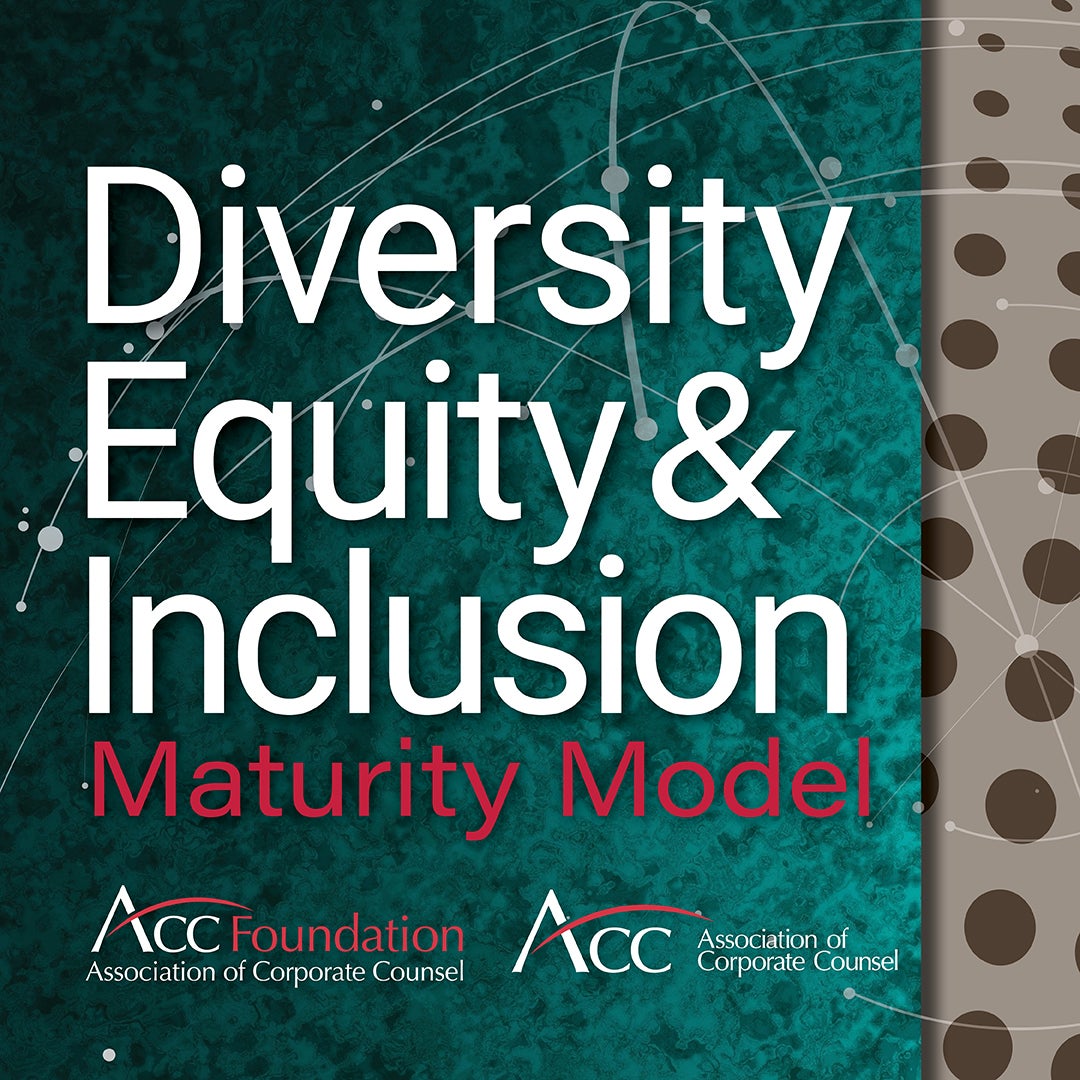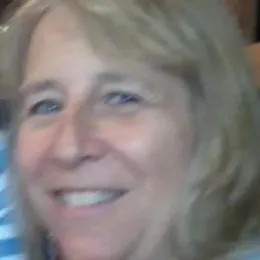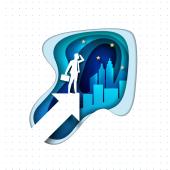DEI — diversity, equity, and inclusion — is a hot topic and critical aspect of workplace training, culture, relationships, promotions, pay, and more. It is essential for in-house counsel to assure it is implemented, fostered, and effects change not only in the legal department but throughout the organization.
Benchmarking to establish milestones
Whether a DEI program is just beginning or well established — savvy counsel know that measurement is key toward knowing where the organization is and what steps it must take to mature along the way.
To assist legal department leaders in this effort, ACC and the ACC Foundation, working with an advisory committee of top corporate executives with DEI expertise, developed the DEI Maturity Model, which was launched in November 2021.
Additional resources and case studies based on the model are planned — all help make DEI programs a success.
To further introduce the resource and discuss how it can be applied in legal departments and more generally across organizations, ACC Foundation and Ethisphere Institute partnered on an online program "Measure for Change - A discussion on the ACC Foundation DEI Maturity Model" held on Feb 17, 2022.
The panel included:
- Jen Chen, Director, ACC Foundation
- Keilon J. Forest, Program Director, ACC Foundation
- Craig Moss, Vice President of Measurement, Ethisphere Institute
- Burt Fealing, Executive Vice President, General Counsel, and Corporate Secretary, Southwire Company
- Linda Gatsby, Senior Vice President, General Counsel, and Chief Diversity, Equity, and Inclusion Officer, NBME
The panel was moderated by Anand Sharma, managing partner of Finnegan, Henderson, Farabow, Garrett & Dunner, LLP.
Tools, resources, and success stories
The DEI Maturity Model will continue to grow in relevance and content as participants add their own success stories, useful resources, and additional tools.
A key element highlighted during the program was to assure that all areas of the legal department, and hopefully the organization itself, are assessed via a DEI lens. For example, “Those who have reached a level of equity may not feel included fully in activities, mentoring opportunities, and more,” Forest says. That is, although an organization may succeed in diversity and equity — a truly mature organization will measure success by inclusion.
Many companies don’t measure where they are, so they don’t know how to get where they want to go, according to Moss of Ethisphere Institute, a program partner.
Many companies don’t measure where they are, so they don’t know how to get where they want to go.
Setting priorities
The DEI Maturity Model informs organizations on how their progress, internally and externally, compares to others. “What should I do to get better” will be clear, Moss says. It will help set a baseline and priorities. Users will “understand the difference between maturity metrics and performance metrics,” toward fine-tuning the program for the long term, he continues.
DEI is one of the top two priorities in organizations now. “We are seeing companies setting goals, but they don’t necessarily have the governing structure to achieve the goals in a timely manner,” Moss adds. The DEI Maturity Model will guide them.
Being intentional about career advancement
“We have to be very intentional about what we are doing to help people advance in their careers,” says Fealing during the panel discussion, referencing moving ahead in one’s career as a person of color. “When we talk about a successful diverse lawyer, they've utilized mentors and sponsors,” Sharma points out.
“Mentors and sponsors have been pretty important in the trajectory of my career,” shares Gatsby. “Being a Black woman, for me, adds more at the table. It's my uniqueness that allows me to look at things differently than perhaps some others have, to come up with solutions.”
Model development
The ACC Foundation worked in partnership with law firms Greenberg Traurig and Finnegan to interview a number of general counsel. Their stories laid the foundation of what best practices and policies helped them to defy the odds and can help ensure there continue to be more diverse leaders to follow.
- Ricardo Anzaldua - Freddie Mac, General Counsel
- Marcus Brown - Entergy, Executive Vice President & General Counsel
- Halimah DeLaine Prado - Google Inc., General Counsel
- Burt Fealing - Southwire, EVP, General Counsel, Compliance and Corporate
- Secretary
- Elisa Garcia - Macy's, Chief Legal Officer
- Lily Hughes - Arrow Electronics and Public Storage, Former SVP, Chief Legal
- Officer
- Don Liu - Target, Executive Vice President and Chief Legal and Risk Officer
- John Page - Golden State Food, SVP, Chief Corporate Social Responsibility Officer & CLO
- Halimah DeLaine Prado - Google Inc., General Counsel
- Kim Rivera - HP, Inc., Chief Legal Officer/ President, Strategy & Business
- Management
- Julia Simon - Mary Kay, Chief Legal Officer and Corporate Secretary
- Alan Tse - JLL, Global Chief Legal Officer & Corporate Secretary
- Wanji Walcott - Discover Financial Services, Inc., Chief Legal Officer and General
- Counsel
A working group was then convened to develop and refine the categories and descriptions within the model. Members of the working group include:
- Diana Barlow, Voya Financial
- Mary Burelle, McDonald’s Corp.
- Elizabeth Campbell, Campbell Soup Company
- Earnest DeLoach, Balfour Betty U.S.
- Sneha Desai, BASF
- Andre Green, Freddie Mac
- Kristen Jones, McDonald’s Corp.
- Christine Juhasz, MassMutual
- Bobbie Jo Kalamaras, Freddie Mac
- Jennifer Lagunas, AbbVie
- Eric Mahler, Meritor
- Jim Michalowicz, TE Connectivity
- Alison Nelson, Ford Motor Co.
- Sam Ranganathan, AbbVie
- John Seward, Intel
- Adonica-Jo Wada, Facebook
- David White, Accenture
Has the ACC Foundation DEI Maturity Model helped your company on its DEI journey? Send the ACC Foundation your success stories.





